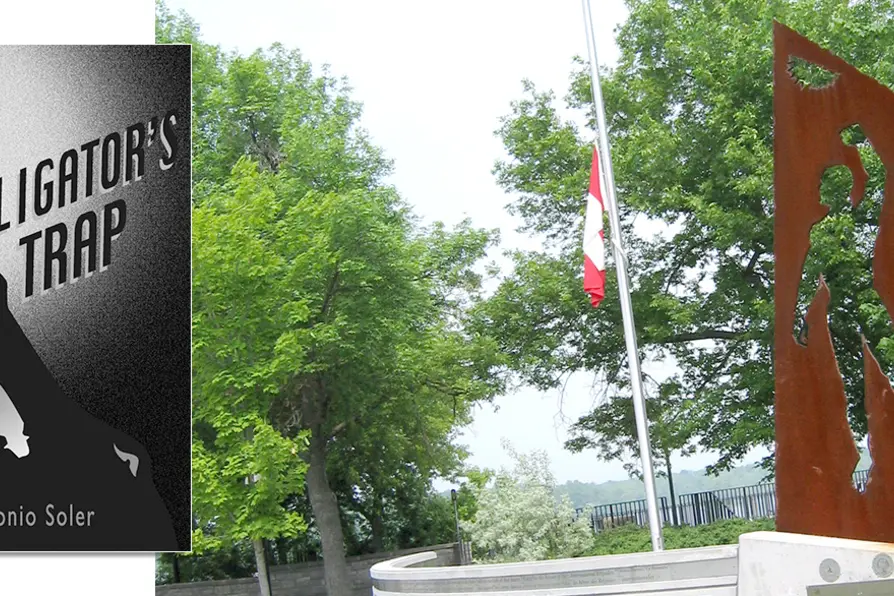Re-releases from Bobby Wellins/Kenny Wheeler Quintet, Larry Stabbins/Keith Tippet/Louis Moholo-Moholo, and Charles Mingus Quintet

 The Mackenzie-Papineau Battalion monument, in Ottawa, remembering Canadian volunteers in the Spanish Civil War, was unveiled on October 20 2001 and was selected through a competition won by Oryst Sawchuk
Pic: Gabriel/CC
[Gabriel / Creative Commons]
The Mackenzie-Papineau Battalion monument, in Ottawa, remembering Canadian volunteers in the Spanish Civil War, was unveiled on October 20 2001 and was selected through a competition won by Oryst Sawchuk
Pic: Gabriel/CC
[Gabriel / Creative Commons] The Alligator’s Trap
By Antonio Soler (trans Kathryn Phillips-Miles & Simon Deefholts), Clapton Press, £12.99
THIS enigmatic and elliptical novelette left this reader very dissatisfied. A Spanish refugee, living out his twilight years in Canada delivers a bitter, circular soliloquy, taking us from the present to the past and back again on a slippery, uncertain path.
The narrator is a political refugee from Spain, who is working as a hotel receptionist in Toronto, Canada.
He is suddenly confronted with his former life when an old man walks into the hotel and asks for a room. On hearing the man’s name, the receptionist recognises it as that of an old comrade from Barcelona who may have betrayed him and his comrades many years ago. It awakens in him all the nightmares of the past.
The man, a former communist from a bourgeois background, has come to Toronto to attend the unveiling of a monument to the Canadian battalion members who fought alongside him in the Spanish civil war.
Somehow this man became involved with a small group of anarchists during the 1950s, who planned a raid on an armoury. The raid went badly wrong, one comrade was killed, and the others arrested and given long prison sentences by the Franco regime. It is assumed that this man betrayed them but whether that is true or not remains nebulous.
The narrator remains a captive of his bitter memories and dreams of taking revenge on the man he is certain has betrayed him and his comrades. We are told that the narrator had read books on communism but also Bakunin’s works. Are he and his fellow conspirators anarchists or communists? It is never made clear. We have a foggy picture of a small oddball group of marginal figures planning a raid near Barcelona. What the reason or purpose is for this raid is unstated.
The Spanish title of the novel, El Sueno del Caiman (The Alligator’s Dream) better captures the essence of this story than the English one.
It is a monologue, compiled of half-faded memories and dreams. I am left wondering what the author’s purpose is in writing it.
We learn nothing concrete about the Spanish civil war or the ’50s anarchist group at the heart of this story. They serve merely as an impalpable background to an old man’s bitter reminiscences.
Like Soler’s previous novel situated in the civil war — El Nombre Que Ahora Digo (Soldiers in the Fog) — this one, too, reflects the author’s profound misanthropy.

LYNNE WALSH tells the story of the extraordinary race against time to ensure London’s memorial to the International Brigades got built – as activists gather next week to celebrate the monument’s 40th anniversary













